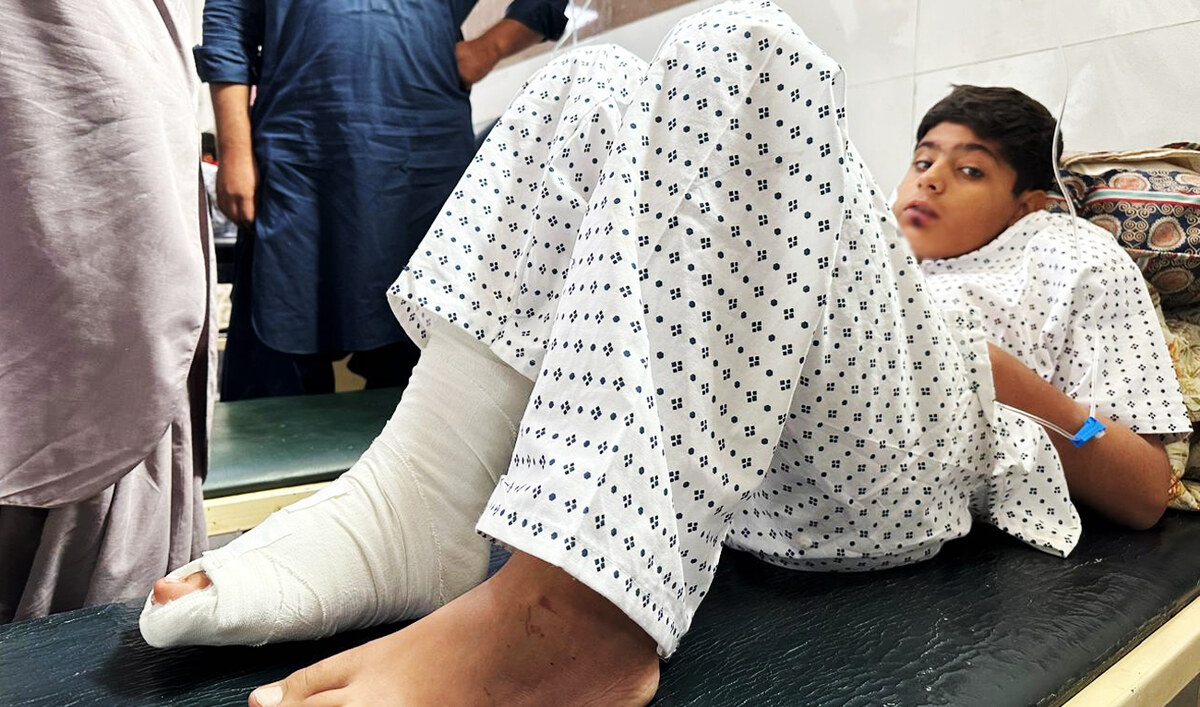QUETTA: At least nine people, including children and a police constable, were killed and nearly two dozen others injured in a roadside blast in Pakistan’s southwestern Balochistan province on Friday morning, officials said, in the latest incident of violence to hit the restive region.
The blast appeared to target a police mobile van passing by a girls school in the Mastung district of the province, according to police and local administration officials.
The explosion resulted from an improvised explosive device (IED) fitted inside a motorbike that was parked outside a mechanic’s shop, according to Mastung Deputy Commissioner Baz Muhammad Marri. The IED went off when the police mobile and a school van were passing by early on Friday, initially killing seven people.
“Seven people, including a policeman and five minor children, were killed and 22 others injured in the blast,” Marri told Arab News. “We are ascertaining that who was actually targeted in the blast because a police mobile and a school van were both passing by the area.”
No group immediately claimed responsibility for the blast.

An injured boy receives treatment at the Civil hospital in Quetta, Pakistan, on November 1, 2024. (AN photo by Saadullah Akhtar)
Sarfaraz Bugti, chief minister of Balochistan, condemned the attack and expressed sorrow over the loss of lives in its wake.
“The terrorists have targeted innocent children, we will hold accountable the perpetrators of the blast,” he said in a statement.
Waseem Baig, a spokesman for the Balochistan health department, said 11 injured, including two children, had been shifted to Quetta Trauma Center.
“Three injured are in critical condition and being treated as provincial health minister already declared an emergency in Civil Hospital Quetta,” he told Arab News.
Later, Dr. Arbab Kamran Kasi, head of the trauma center, said the two injured from the Mastung blast had succumbed to their injuries while being treated at the medical facility.
“A 17-year-old had suffered severe head injuries, and another had received numerous wounds on his body,” he informed. “Both could not survive.”
Station House Officer in Mastung Fateh Baloch told Arab News over the phone that the bomb disposal team had completed its investigation and collected evidence from the blast site.
“Six to eight kilograms of explosives were used to build the IED device fitted on a motorbike,” he said.
Balochistan, which borders Iran and Afghanistan and is home to major China-led projects such as a strategic port and a gold and copper mine, has been the site of a decades-long separatist insurgency by ethnic Baloch militants. The province has lately seen an increase in attacks by separatist militants.
On Tuesday, five people were killed in an attack by armed men on the construction site of a small dam in Balochistan’s Panjgur district. The outlawed Baloch Liberation Army (BLA), the most prominent of several separatist groups, claimed responsibility for the attack along with killing of two other persons in Kech and Quetta districts.
Last month, 21 miners working at privately run coal mines were killed in an attack by unidentified gunmen.
The separatists accuse the central government of exploiting Balochistan’s mineral and gas resources. The Pakistani state denies the allegation and says it is working to uplift the region through development initiatives.
Besides Baloch separatists, the restive region also has a presence of religiously motivated militant groups, who frequently target police and security forces.
Islamabad says militants mainly associated with the Pakistani Taliban frequently launch attacks from Afghanistan and has even blamed Kabul’s Afghan Taliban rulers for facilitating anti-Pakistan groups. Kabul denies the allegation.



















